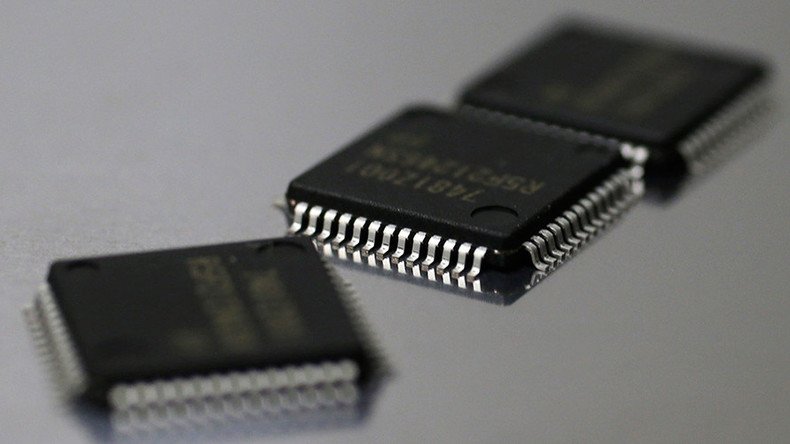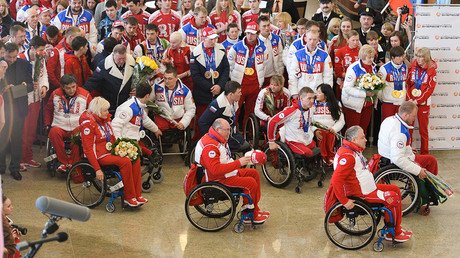Put microchips in athletes like dogs for stricter doping checks, sports official says

The chief executive of the World Olympians Association (WOA) has said that athletes could be fitted with microchips to help prevent doping.
Mike Miller, whose organization supports thousands of Olympians around the world, has said implanting microchips in athletes could help measure changes in blood that result from taking banned substances.
“Some people say we shouldn’t do this to people. Well, we’re a nation of dog lovers, we’re prepared to chip our dogs, and it doesn’t seem to harm them, so why aren’t we prepared to chip ourselves?” Miller told participants at a forum in Westminster, London, according to the Guardian.
“In order to stop doping we need to chip our athletes where the latest technology is there. Some people say it’s an invasion of privacy, well, sport is a club and people don’t have to join the club if they don’t want to, if they can’t follow the rules.
“Microchips get over the issue of whether the technology can be manipulated because they have no control over the device.
"The problem with the current anti-doping system is that all it says is that at a precise moment in time there are no banned substances but we need a system which says you are illegal substance-free at all times and if there are changes in markers they will be detected.”
Miller fears that developments in microchip technology could aid athletes who dope, as they could use their own chips to monitor substances in their blood, managing them accordingly so that potential testers could be fooled.
Implanting chips accessed by official organizations could negate that threat, he believes.
Miller was keen to stress that he was offering his personal views, rather than speaking on behalf of the WOA.
“I’m just throwing the idea out there. I’m gauging reaction from people but we do need to think of new ways to protect clean sport. I’m no Steve Jobs but we need to spend the money and use the latest technology,” he said.
The proposals appeared to meet a skeptical approach from some fellow officials, including Nicole Sapstead, chief executive of UK Anti-Doping (UKAD).
“We welcome verified developments in technology which could assist the fight against doping,” she said, the Telegraph reported.
“However, can we ever be sure that this type of thing could never be tampered with or even accurately monitor all substances and methods on the prohibited list?
“There is a balance to be struck between a right to privacy versus demonstrating that you are clean.”













